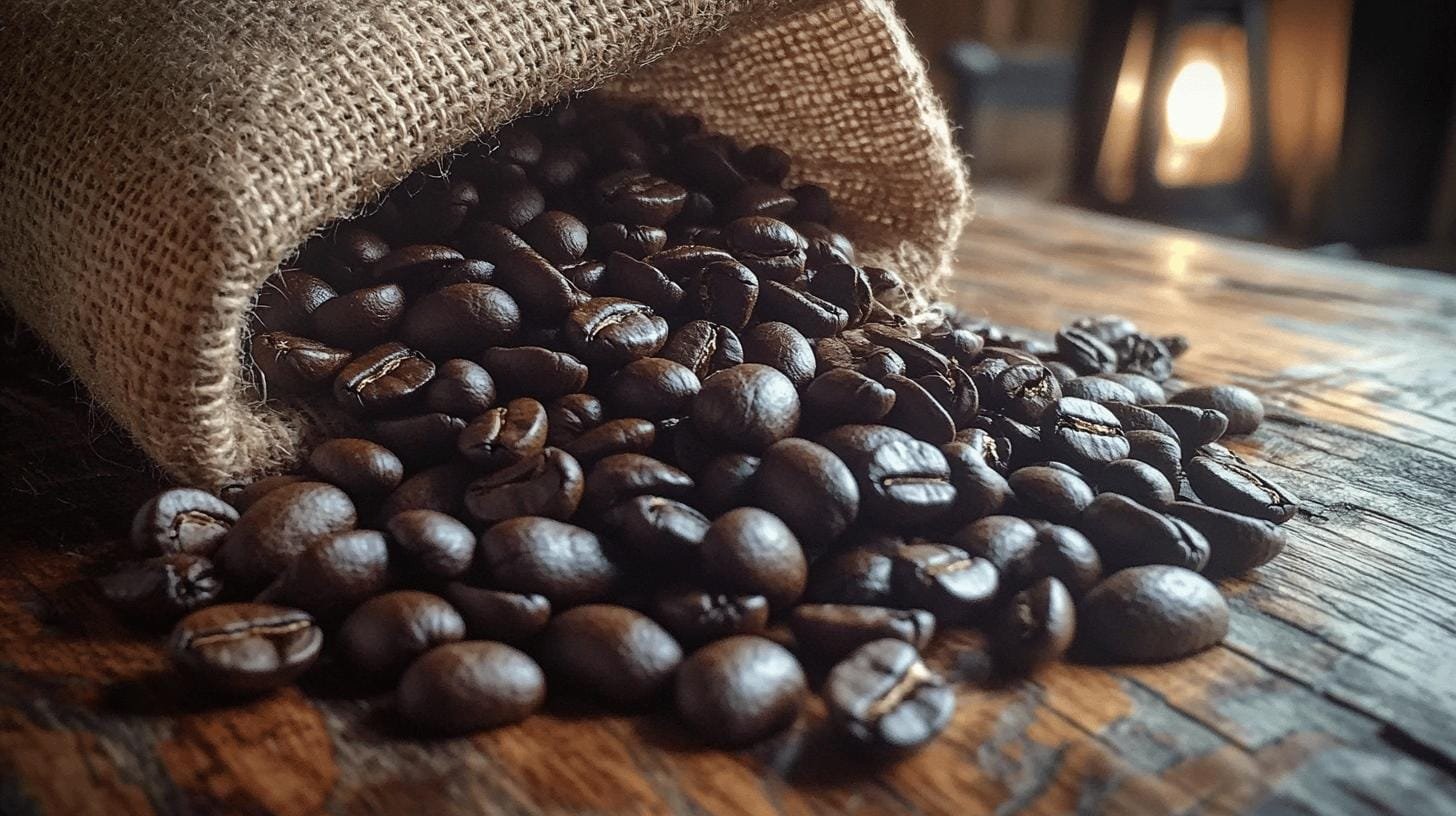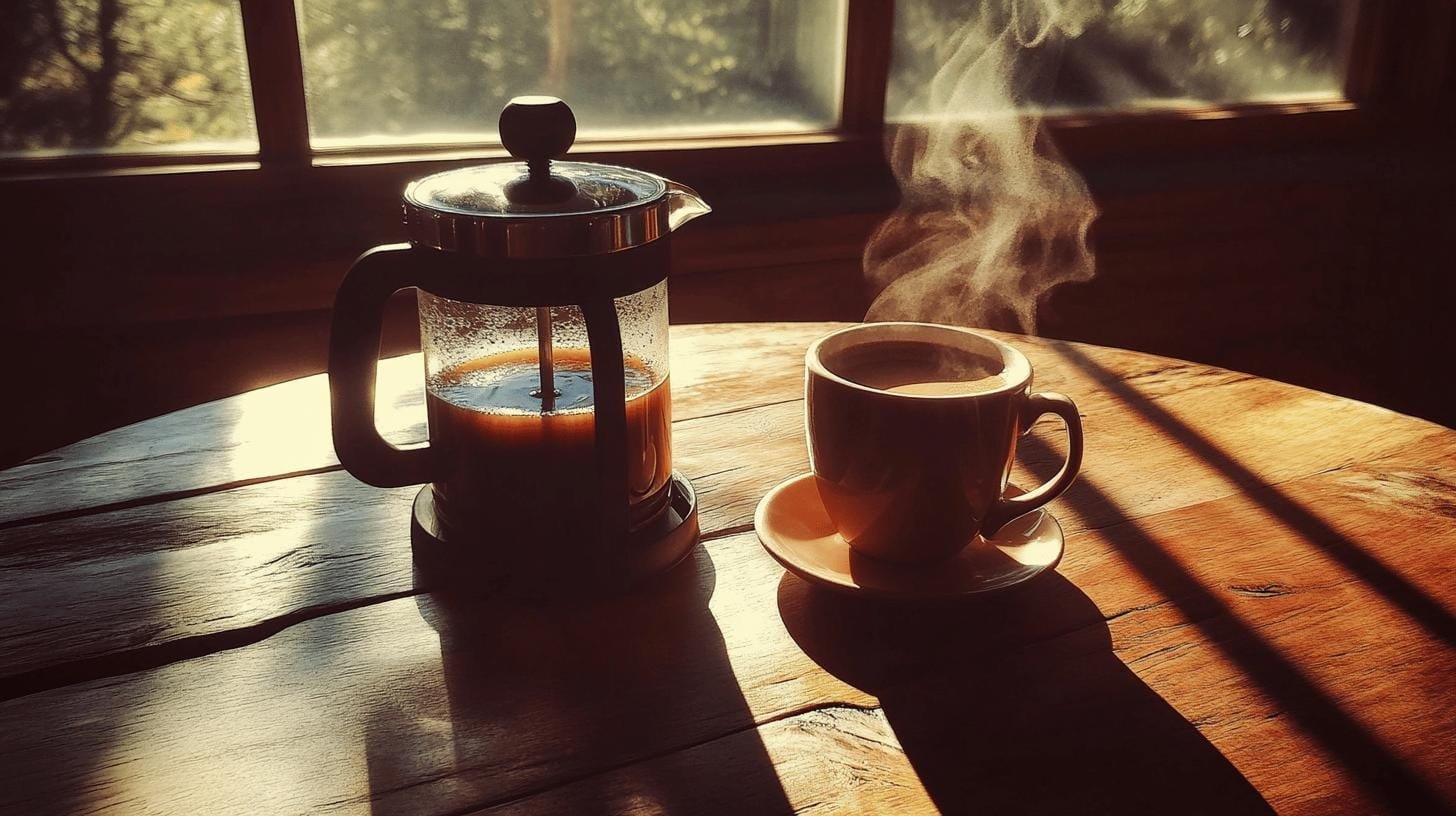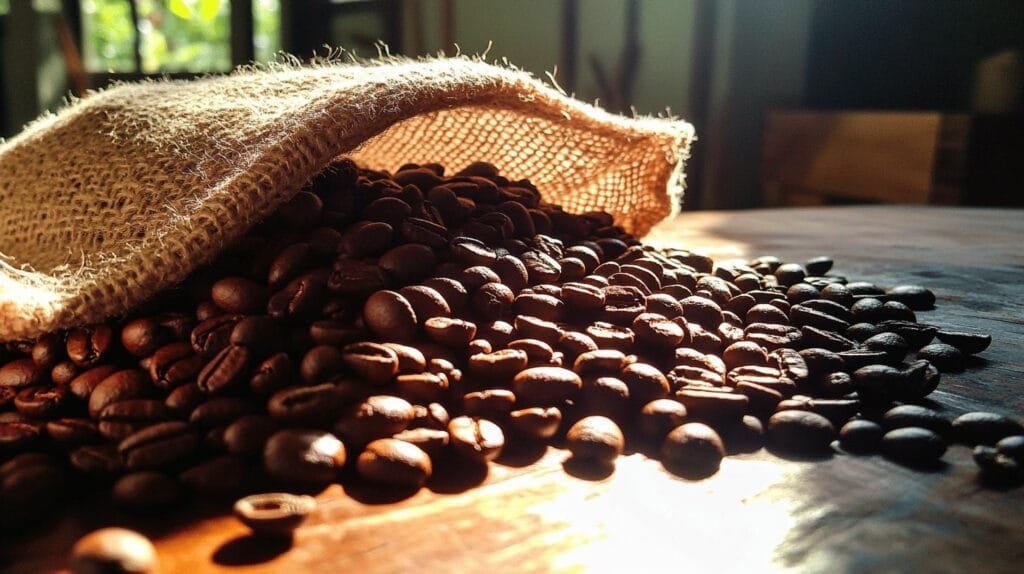Could the secret to the world’s finest coffee lie within the rich soils of Brazil? With a taste profile characterized by nutty sweetness, low acidity, and hints of bittersweet chocolate, Brazilian coffee beans have captured the hearts of coffee aficionados globally.
Primarily comprised of Arabica varieties, these beans are celebrated for their unique flavor attributes that elevate both single-origin brews and blends alike. This article dives into the essential elements that define Brazilian coffee beans, exploring their flavor complexities and predominant characteristics that make them a staple in the coffee world.
Understanding Brazilian Coffee Beans
Brazilian coffee beans are famous for their nutty and sweet flavors, with low acidity and notes making of bittersweet chocolate. This creates a smooth, well-rounded taste, loved by coffee enthusiasts. Most beans grown in Brazil are Arabica, adding to this complex flavor. They’re versatile for various brewing styles. The balance between sweetness and bitterness, with a hint of nuts, defines Brazilian coffee beans.
Brazil mostly produces Arabica beans, but some Robusta varieties are also grown. Arabica beans from Brazil are known for their rich flavor. They’re often used in single-origin coffees or mixed into blends. Their chocolate, nut, and caramel notes make them popular in premium and commercial blends. These beans enhance the depth and complexity of coffee, adding a unique Brazilian touch to any mix.
Exploring Major Brazilian Coffee Growing Regions

Brazil’s coffee regions are crucial because of their different climates and soils, offering a variety of coffee flavors. The country’s large landscape provides diverse growing areas, impacting the taste and quality of its beans.
Cerrado Region has a savanna climate with distinct wet and dry seasons. Its elevation ranges from 800 to 1,300 meters. This setting produces high-quality beans with balanced acidity and sweetness, often tasting like nuts and chocolate. Cerrado’s steady climate and large-scale farms make it key to Brazil’s coffee output, known for flavorful and dependable beans.
Minas Gerais is the largest coffee-growing state in Brazil, making almost half of the nation’s coffee. Its varied topography and climates, from valleys to mountains, produce diverse coffee flavors. It’s famous for specialty-grade beans, especially from areas like Sul de Minas, offering rich bodied coffees with low acidity and complex flavors.
Sao Paulo has high-altitude plantations ideal for growing Arabica coffee. The Mogiana region benefits from these heights, which enhance bean density and result in coffee with pronounced acidity and sweetness. This elevation helps develop fruity and floral flavors, making Sao Paulo’s coffee valuable for both single-origin and blends.
The History of Brazilian Coffee and Its Cultural Impact
Brazilian coffee history started in 1727 when coffee plants arrived in Pará. Legend credits this to Francisco de Melo Palheta, who allegedly got coffee cuttings from the governor’s wife in French Guiana. This event positioned Brazil as a coffee leader. Coffee quickly spread, supported by Brazil’s ideal climate and fertile soil. By the 19th century, Brazil became the world’s largest coffee producer—a title it still holds.
In Brazil, coffee, or “cafezinho,” is more than just a drink. It’s a sign of hospitality and friendship. Offering coffee to guests is a tradition showing warmth and community. Coffee breaks, called “cafezinho” moments, are common, fostering social ties in homes and workplaces.
Coffee is vital to Brazil’s economy, supporting millions in farming, processing, and exporting. It’s a major export that impacts the nation’s economy significantly. Culturally, events like São Paulo’s “Festa do Café” celebrate coffee’s heritage through tastings and competitions. These events honor coffee’s role in shaping Brazilian identity and community life.
Brewing and Enjoying Brazilian Coffee at Home

How Is Brazilian Coffee Processed?
Most Brazilian coffee is dry processed, where the whole cherry dries, enriching flavors and giving a fuller body. This method highlights beans’ natural sweetness. Some, like Bourbon Santos, use wet processing to boost clarity and brightness. The process method shapes the flavor, allowing Brazilian coffee to suit varied tastes.
Brewing methods:
- French Press
- Espresso
- Siphon/Vacuum Pot
- Moka Pot
Buying Brazilian coffee beans and roasting at home preserves and heightens rich flavors. Freshly roasted beans retain aromatic compounds key to coffee’s aroma and taste. Home-roasting lets you pick roast levels, revealing Brazilian coffee’s unique flavors. This enhances the coffee experience and connects you more to the process.
Where to Buy Brazilian Coffee Beans
You can find Brazilian coffee beans at specialty stores, online, and local roasters. Specialty retailers offer high-quality bean selections, while online shopping provides convenience. Local roasters ensure fresh beans with peak flavor and aroma. For the best experience, buy whole beans, freshly roasted, priced between $6.00 and $9.00. This preserves flavors and enhances the quality of your brew.
Final Words
Exploring Brazilian coffee beans reveals their distinctive characteristics and unique regional influences. With nutty, sweet flavors and chocolate notes, these beans are predominantly Arabica. Brazil’s key coffee-growing regions, such as Cerrado, Minas Gerais, and Sao Paulo, contribute uniquely to the coffee industry through their diverse climates and elevations.
Understanding traditional processing methods and brewing techniques enhances the home-brewing experience. Sourcing freshly roasted Brazilian coffee beans online or from specialty retailers ensures quality and flavor. Enjoying these beans at home enriches the coffee experience with authenticity and depth.
FAQs
What makes Brazilian coffee beans unique?
Brazilian coffee is characterized by nutty, sweet flavors, low acidity, and roast notes of bittersweet chocolate, commonly featuring notes of chocolate, nuts, and caramel.
What are some recommended brands for Brazilian coffee beans?
Popular Brazilian coffee beans brands include Carmo Coffee, Bourbon Santos, and Volcanica, known for delivering quality beans with distinct flavor profiles.
Where can one buy authentic Brazilian coffee beans?
Authentic Brazilian coffee beans are available at specialty coffee retailers, online marketplaces, and local roasters; prioritize buying whole-bean coffees for maximum freshness.
How much do Brazilian coffee beans typically cost?
The price for Brazilian coffee beans ranges between $6.00 and $9.00, depending on the quality and type of beans purchased.
What are the major coffee-growing regions in Brazil?
Brazil’s key coffee-growing regions include Cerrado, Minas Gerais, and Sao Paulo, each offering unique microclimates and contributing distinct characteristics to the coffee profile.













